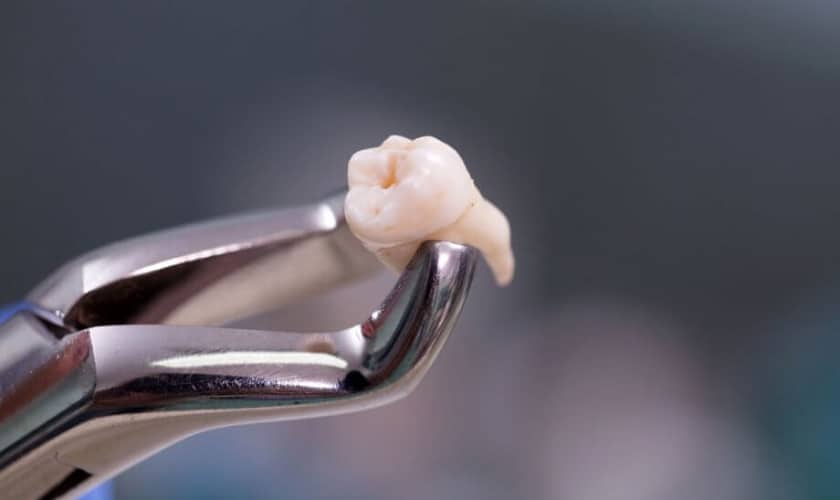
Wisdom teeth are a set of four adult molars that usually appear in late teenage or early adulthood. They grow in the back corners of the upper and lower jaws, and while some people have no issues with them at all, many find themselves requiring wisdom tooth extraction due to overcrowding or other health complications. But what is wisdom teeth removal, and what is the procedure like? This comprehensive guide will cover all of that and more so that you can make a well-informed decision about whether this popular procedure is right for you.
What Are Wisdom Teeth?
Wisdom teeth are the third molars that grow in the back corners of your upper and lower jaws. They usually appear in late teenage or early adulthood, between the ages of 16-20. They’re so-called because they come in at an age when a person is thought to be wiser than when their other teeth came in. Not everyone gets wisdom teeth – some have fewer than four, while others never develop any at all.
Why Do Wisdom Teeth Need to Be Removed?
In some cases, wisdom teeth can cause overcrowding and inflammation in the mouth, leading to pain, infection, and other complications. This is particularly true if they’re misaligned, partially or fully impacted (stuck underneath the gum line), or grow at an angle. If left untreated, wisdom teeth can cause larger problems down the line and should be removed to avoid further complications.
What Is Wisdom Teeth Removal?
Wisdom tooth extraction is a surgical procedure in which wisdom teeth are removed by an oral surgeon. It’s a relatively straightforward outpatient procedure and can be done with local anesthesia for mild discomfort or general anesthesia for those who are more apprehensive.
What Is the Procedure Like?
The wisdom tooth extraction procedure starts with numbing the area around the tooth to minimize any pain that may occur during the process. The oral surgeon will then make an incision in the gum tissue to gain access to the tooth. Once the bone around the tooth has been exposed, it will be carefully removed from its socket and any surrounding tissue. The incision is then sutured and the area of treatment is disinfected.
How Long Does It Take?
The procedure itself usually takes around 20 to 40 minutes, depending on how complicated the extraction is. In some cases, multiple wisdom teeth may need to be removed at once, which can take up to an hour or longer.
What Is the Recovery Like?
Most people are able to go home and resume their normal activities on the day of their wisdom teeth removal. It’s important to rest and take it easy for a few days afterward, as your jaw may be sore and tender from surgery. Your oral surgeon will likely prescribe painkillers and anti-inflammatory medications to help manage any discomfort. You should avoid brushing your teeth around the surgical site for at least a few days and follow the surgeon’s instructions for post-operative care.
Are There Alternatives to Wisdom Teeth Removal?
In some cases, a dental extraction may not be necessary if there are no complications or overcrowding present. Your dentist may recommend monitoring the teeth through x-rays or other tests to determine if extraction is necessary. If the wisdom teeth are properly aligned and healthy, they may be able to remain in your mouth without causing any issues.
What Are the Complications of Wisdom Teeth Removal?
Like any other surgical procedure, wisdom teeth removal carries a certain risk of complications such as infection, dry socket, and nerve damage. To reduce the risk of any complications, it’s important to follow all post-operative instructions for care and be sure to keep all follow-up appointments with your oral surgeon.
Tips for Recovery
The recovery process can be uncomfortable, but there are a few things you can do to make it go smoother. Following your dentist’s instructions for post-operative care is very important, and you should also try to stay hydrated, eat soft foods, and get plenty of rest. You should also avoid smoking or drinking through a straw, as these can cause infection or dry sockets.
Conclusion:
Wisdom teeth removal is a relatively common procedure that can help prevent overcrowding and other complications in the mouth. It’s important to understand all aspects of the procedure, from what it entails to how long the recovery process takes, so you can make an informed decision about whether or not wisdom teeth extraction is right for you.
The procedure itself is not usually painful as the area will be numbed. However, you may experience some discomfort or tenderness afterward while your mouth is healing.
During the recovery process, it’s important to rest and take it easy. You should avoid brushing your teeth around the surgical site for at least a few days, and follow all post-operative instructions for care provided by your oral surgeon.
Like any other surgical procedure, wisdom teeth removal carries a certain risk of complications such as infection, dry socket, and nerve damage. To reduce the risk of any complications, it’s important to follow all post-operative instructions for care and be sure to keep all follow-up appointments with your oral surgeon.


